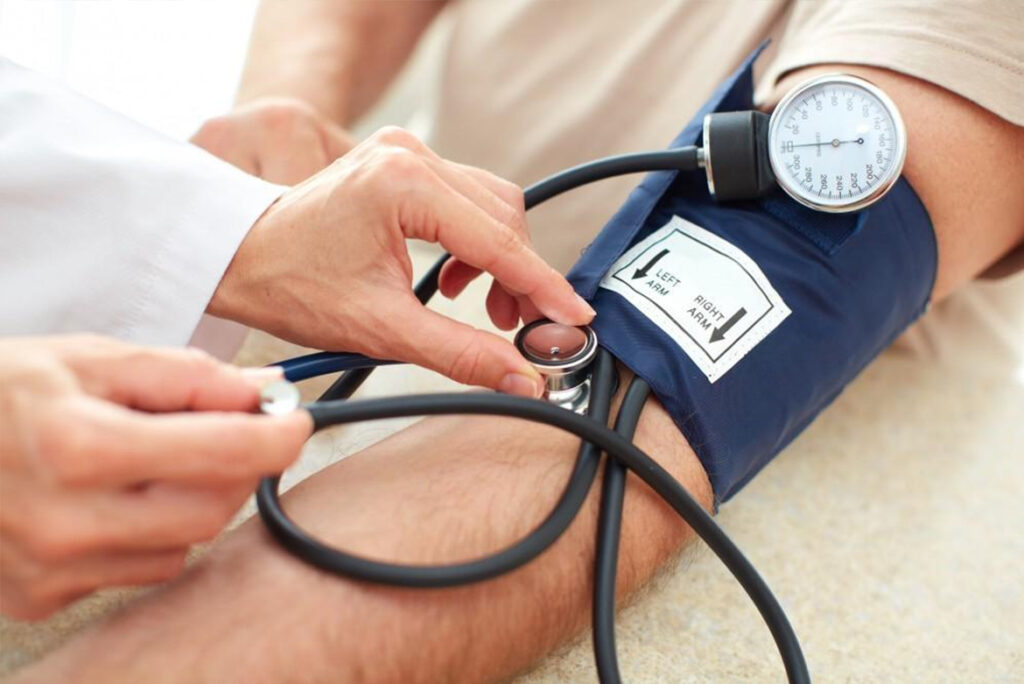Being diagnosed with diabetes or hypertension (high blood pressure) can feel overwhelming. When you’re managing both conditions together, the challenge is even greater. These conditions often go hand-in-hand, a combination sometimes called “diabetic hypertension,” which significantly increases the risk for heart disease, stroke, and kidney problems.
The good news is that with a proactive and integrated management plan, you can live a long, healthy, and active life. This guide provides a clear, actionable roadmap for managing diabetes and hypertension, and highlights how Lilavati Clinic and Wellness in Ahmedabad provides the comprehensive care you need under one roof.
Understanding the Link: Why Diabetes and Hypertension Often Coexist
Diabetes and hypertension are closely related. High blood sugar from diabetes can damage your blood vessels and kidneys, which in turn can raise your blood pressure. Conversely, high blood pressure can make it harder for your body to control blood sugar. This creates a cycle that requires a coordinated treatment approach.
The Four Pillars of Managing Diabetes and Hypertension
Effective management rests on four key pillars: Lifestyle Modifications, Medication Adherence, Monitoring, and Specialist Care.
1. Lifestyle Modifications: Your First Line of Defence
What you do daily has the most significant impact on controlling both conditions.
- • Dietary Changes (The Right Plate):
- o Embrace a Heart-Healthy Diet: Focus on the DASH (Dietary Approaches to Stop Hypertension) diet, which is also excellent for diabetes. This means eating plenty of fruits, vegetables, whole grains, and lean proteins.
- o Reduce Sodium (Salt): Excess sodium spikes blood pressure. Aim for less than 2,300 mg per day. Avoid processed foods, read labels, and use herbs and spices for flavour.
- o Manage Carbohydrates: Choose complex carbs (like whole wheat, oats, and brown rice) over simple carbs (like white bread and sugar) to prevent blood sugar spikes.
- • Regular Physical Activity:
- o Aim for at least 30 minutes of moderate exercise, like brisk walking, swimming, or cycling, most days of the week. Consistency is key.
- • Weight Management: Even a modest weight loss of 5-10% of your body weight can dramatically improve blood sugar and blood pressure control.
- • Stress Management and Quality Sleep: Chronic stress and poor sleep can raise both blood sugar and blood pressure. Practice relaxation techniques like meditation or deep breathing.
2. Medication Adherence: Following Your Personalized Plan
For many, lifestyle changes alone are not enough. Taking prescribed medications consistently is non-negotiable.
- • Do not skip doses or stop medication without consulting your doctor.
- • Understand your medications Know what they do and any potential side effects.
- • Use a pill organizer or set reminders to stay on track.
3. Consistent Monitoring: Knowledge is Power
You can’t manage what you don’t measure.
- • Monitor Blood Sugar at Home: Regular checks help you understand how food, activity, and stress affect your levels.
- • Check Blood Pressure at Home: Keep a log of your readings to share with your doctor.
- • Keep Regular Clinic Appointments: Follow-up visits are crucial to assess progress and adjust your plan.
4. The Critical Role of Specialist Care and Diagnostics
Managing two chronic conditions requires more than a single doctor’s opinion. It demands a coordinated, multi-specialist approach. This is where an integrated clinic like Lilavati Clinic and Wellness becomes invaluable.
Your Partner in Care: How Lilavati Clinic and Wellness Supports Your Journey
At Lilavati Clinic and Wellness, we understand that managing diabetes and hypertension is a marathon, not a sprint. We provide all the essential services and specialist support you need for successful, long-term health.
Your Integrated Care Team at Lilavati Clinic
| Service You Need | How Lilavati Clinic Delivers |
|---|---|
| Expert Consultation | Access to Consulting Physicians and Diabetologists who create a personalized, combined treatment plan. |
| Comprehensive Diagnostics | Our in-house Lilavati Diagnostic & Pathology Lab provides crucial tests like HbA1c, Lipid Profile, Kidney Function Tests (KFT), and Thyroid panels, all essential for monitoring your conditions. |
| Cardiac Monitoring | We offer ECG and other cardiac assessments to proactively safeguard your heart health. |
| Dietary & Lifestyle Counselling | Get expert guidance on meal planning, weight management, and exercise tailored specifically for diabetic and hypertensive patients. |
| Convenience & Continuity | All your consultations, tests, and follow-ups happen in one place, ensuring seamless coordination between your doctors. |
A Success Story: Integrated Care in Action
Consider a patient who comes in with uncontrolled blood sugar and high blood pressure. At Lilavati Clinic, their journey is streamlined:
- 1. They see a Consulting Physician for an initial assessment.
- 2. They get blood tests done immediately at our on-site diagnostic lab.
- 3. Based on the results, the physician, potentially in consultation with other specialists, designs a holistic plan involving medication, diet, and exercise.
- 4. The patient returns for convenient follow-ups and monitoring, building a lasting relationship with a care team that knows them well.
This integrated model prevents the frustration of running between different facilities and ensures all aspects of your health are being managed cohesively.
Take Control of Your Health Today
Managing diabetes and hypertension is a lifelong journey, but you don’t have to walk it alone. With the right knowledge, consistent habits, and a dedicated healthcare partner like Lilavati Clinic and Wellness, you can effectively control your conditions and reduce your risk of complications.
Ready to build your personalized management plan?
Book a consultation with our expert physicians at Lilavati Clinic and Wellness today. Let us provide you with the comprehensive care, advanced diagnostics, and continuous support you deserve.
Disclaimer: This blog is for informational purposes only and is not a substitute for professional medical advice, diagnosis, or treatment. Always seek the advice of your physician or other qualified health provider with any questions you may have regarding a medical condition.





